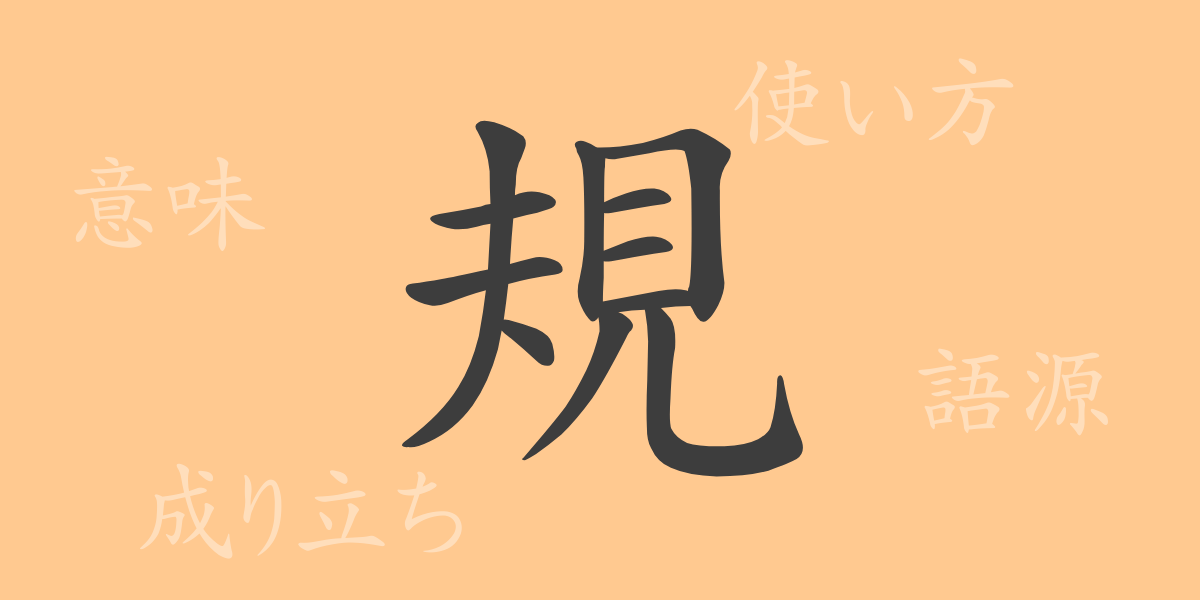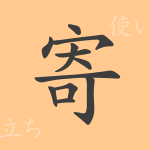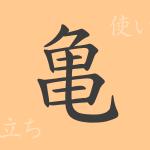Japan’s character culture is profound, with each kanji having its own history and meaning. The commonly used kanji “規” (キ, ki) is no exception and plays a significant role in our daily lives. This article will unveil the full picture of “規” (キ, ki), from its origins to its meaning, usage, and even its presence in idioms and phrases.
Origins of 規 (語源)
The kanji “規” (キ, ki) originated from ancient China, deriving from the tools called “規矩” (きく, kiku), which referred to rulers and compasses. Originally signifying a compass, “規” (キ, ki) came to be used as a character representing standards and norms, as it depicts the action of measuring land with a tool, with the shape of “土” (つち, tsuchi) and “夫” (ふ, fu) overlaid by “見” (み, mi).
Meaning and Usage of 規
The primary meanings of “規” (キ, ki) include “rules,” “norms,” and “scale,” which are used to indicate certain standards or benchmarks. It also encompasses the notion of conducting affairs in accordance with these standards, and is thus used in reference to laws, social rules, and ethics. In terms of usage, “規” (キ, ki) is frequently seen in contexts such as “規定” (きてい, kitei), “規制” (きせい, kisei), and “規約” (きやく, kiyaku), which all relate to setting rules.
Pronunciation, Stroke Count, and Radical of 規
The pronunciation, stroke count, and radical of the kanji “規” (キ, ki) are as follows:
- Pronunciation: The on’yomi (Sino-Japanese reading) is “キ” (ki), and there is no particular kun’yomi (native Japanese reading).
- Stroke Count: It has a total of 11 strokes.
- Radical: The radical is “見” (み, mi).
Idioms, Phrases, and Proverbs Using 規 and Their Meanings
There are various idioms, phrases, and proverbs that include “規” (キ, ki), such as:
- 規模 (きぼ, kibo): The size or scope of something.
- 規範 (きはん, kihan): A standard for behavior or judgment.
- 規定 (きてい, kitei): Pre-established rules or regulations.
- 規制 (きせい, kisei): Restrictions placed on actions or activities within certain limits.
- 規則正しい (きそくただしい, kisoku tadashii): The state of correctly following established rules.
Conclusion on 規
The kanji “規” (キ, ki) is an essential character that represents the rules and standards closely related to our lives. From its origins to the idioms and phrases used in daily life, this kanji plays an indispensable role in indicating order and standards. Understanding and appropriately using norms and rules is fundamental to coexisting in society.

























